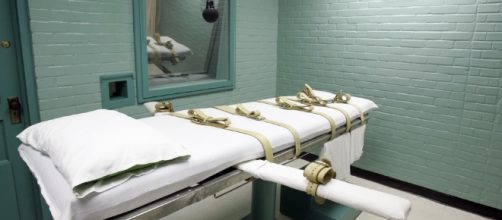In 2016, Hurst vs. Florida was a case about capital punishment sentencing in Florida. The U.S. Supreme Court ruled against the death penalty conviction in Hurst's case. Timothy Hurst was charged with the murder of his Popeye co-worker Cynthia Harrison in 1998. Hurst was looking at a life sentence for the crime he committed, but he was charged with the death penalty instead. Hurst's case was reopened last year and he was again found guilty of first-degree murder and was re-sentenced to the death penalty. Despite the 2016 Ring vs. Arizona ruling.
The Florida Supreme Court rejected Hurst's appeal of seeking life because his argument violated the ruling in Arizona where it permitted a capital sentencing policy by a judge than by jury.
Death penalty
Under the Sixth Amendment of the Constitution of the United States, those charged with a crime have a right to trial by jury. Under the death penalty in Florida, it can only be sought if there is an aggravating factor on record for the person charged of the crime. An aggravating factor could be anything from these sixteen statements:
- The accused is previously convicted of a felony or under felony probation
- The accused is previously convicted of another capital offense
- The accused knowingly murdered many people
- The accused was engaged in committing an offense or was an accomplice to an offense
- The crime was committed to avoid arrest
- The crime was committed for personal gain
- The crime was committed to disrupt the function of a lawful exercise
- The crime committed was cruel or heinous
- The crime was premeditated and calculated
- The victim of the crime was a member of law enforcement
- The victim was a public official elected into office
- The victim was disabled or had a disability
- The victim was under the age of 12
- The crime committed was done by a gang member
- The crime committed was done by a former sexual predator
- The crime committed was done by someone who has a restricted order like child custody
The state of Florida also allows the death penalty to be given to people for committing sexual trafficking or sexual battery that constitutes a capital offense.
Since the Hurst case was reopened, there are still 362 inmates on Death Row in Florida. In the past two years, none of the 362 inmates have been put to death.
HB 7101
In 2013, Gov. Rick Scott signed the Timely Justice Act which made the time frame to appeal a death penalty sentence much harder. It was designed to speed up the conviction process for a death penalty punishment. Hurst vs. Florida states that it violates the right to trial by a jury because the jury is placed in an advisory position. A judge can place the death penalty on the accused if there are enough aggravating facts to put the accuser on death row.


